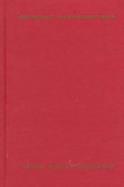Description:
Storytelling is an essential aspect of any legal case. But what kinds of stories win cases, and why? "Criminal Conversations" explores sentimentality as both a literary genre and a rhetorical strategy in the novels and courtrooms of late nineteenth- and early twentieth-century America. By focusing on "criminal conversation"--the civil tort whereby a cuckold sues his wife's lover to for damages to his property rights from the adultery--Korobkin argues that literary discourse, used in the courtroom, affects the outcomes of legal cases. She shows how lawyers used sentimentality strategically to guide juries in reaching verdicts, and how appellate courts appropriated the rhetoric, plots, and characters of sentimental fiction to redefine husbands' and wives' marital obligations."Criminal Conversations" begins by tracking the legal fictions that were part of the civil tort of adultery from its origins in the English Renaissance. Korobkin then examines in detail the final arguments at Henry Ward Beecher's sensational criminal conversation trial of 1874-1875. The final part of the book takes up a series of appellate decisions that decided whether women could bring criminal conversation cases against their husbands' female lovers. Drawing on court documents, as well as literary examples from E.D.E.N. Southworth, Mark Twain, T. S. Arthur, and others, Korobkin explores the intersections of gender, genre, law, and story, revealing the ways in which the courtroom became a site of empowerment for women around the turn of the century. A major contribution to our understanding of the legal power of literary stories and styles, "Criminal Conversations" will be of interest to students of law, literature,rhetoric, and women's studies.
Expand description
Product notice
Returnable at the third party seller's discretion and may come without consumable supplements like access codes, CD's, or workbooks.
| Seller | Condition | Comments | Price |
|
Dotcom liquidators / dc1
|
Good |
$101.25
|

Please Wait

